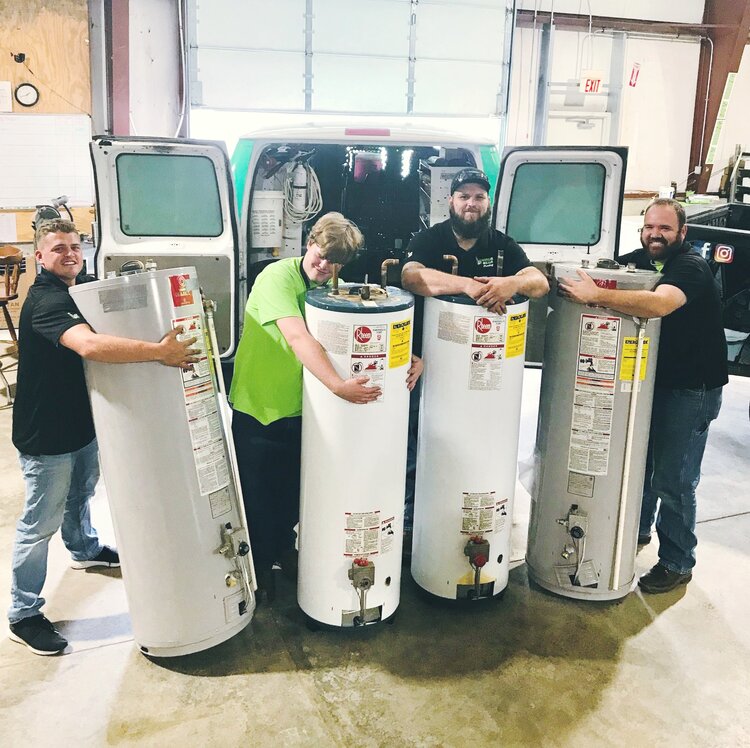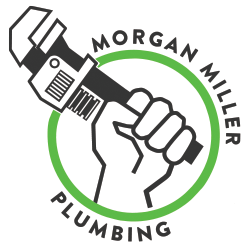Hot water is something most homeowners take for granted until…the dreaded cold shower. Brrrr. And since water heating accounts for about 18% of total household energy consumption, we should all be thinking about how our water heater is performing. It is always a bit easier to plan ahead for a major purchase rather than waiting for it to be an emergency.
With improved heat exchangers and reduced Co2 emissions, today’s water heaters are more efficient than ever.
If your water heater is over 10 years old, you should consider if it might be time to think about replacing your current unit. Here are some signs that your water heater might be on its way out.
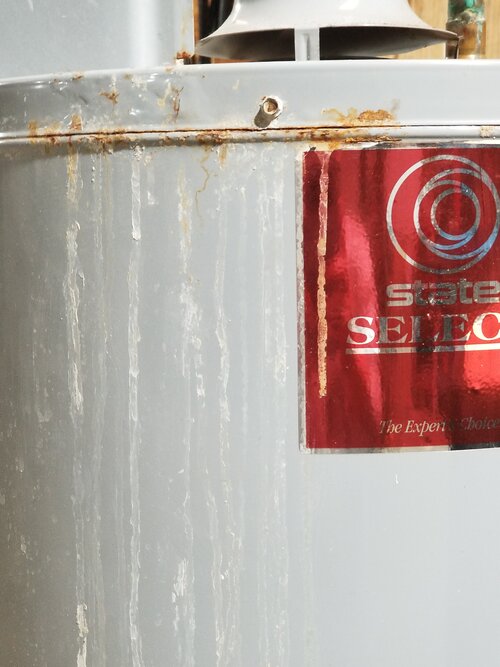
Do a Visual Check:
Does your water heater have visible rust on the outside?
Or worse yet, signs that the flame may have burnt the outside of the heater? The outside of the heater should be clean and free of either of these issues. Rust on the outside means something is leaking and probably preparing to fail. Any soot or flame marks mean that the flame has blown outside of the heater. Heaters manufactured after 2003 have a closed combustion system, which prevents this fire hazard. If you’re seeing this issue, your heater is over 16 years old, could be a fire hazard, and should be replaced immediately.
Listen to Your Heater:
Does your unit make a lot of noise or banging sounds? If so, your heater could be full of sediment. Over time sediment in our water can collect at the bottom of the water heater where it will reduce the amount of hot water your tank can hold. It will keep your unit from performing efficiently and potentially lead to leaks.
Check the Floor Around Your Heater:
Are there any visible drips or puddles under your heater? Water under your heater could be a leak from a fitting or pipe connection. Another common reason is the T&P (temperature & relief) valve leaking.
T&P valves are designed to release excess pressure from the expansion of the water as it heats. The valve is designed to work as a safety precaution and should not release water in a properly working water heater.
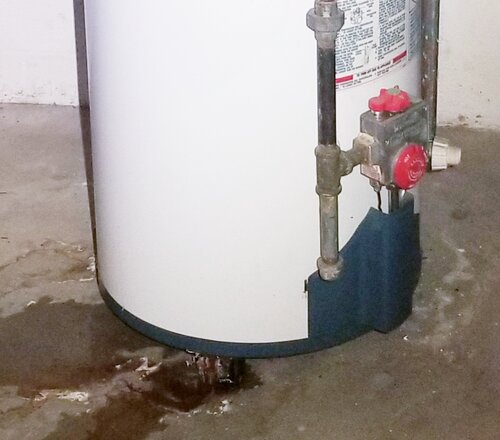
What Does Your Water Look/Smell Like?
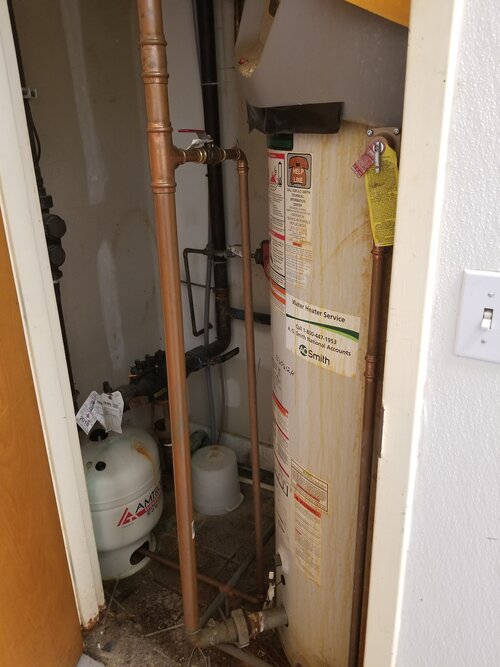
If your hot water is rusty or smells like rotten eggs, it is probably a sign that your heater is rusting from the inside. Properly working water heaters contain an anode rod, which consists of a steel core wire surrounded by metals that protect the heater from rusting through the process of electrolysis. If you notice rusty water, it indicates that the anode rod has eroded, and you should replace your heater.
Is Your Water Hot Enough?
Obviously cold water is a sign your heater is not working. But reduced hot water is also a sign that your system may be preparing to fail. Sediment in the tank reduces the amount of water your tank can heat and reduces heating efficiency of the tank. In winter months, colder water entering the tank can also stress the heating units of your tank. This causes your tank to take extra time to heat, or may even fail.
If you are experiencing any of these issues, your heater may be on its last leg. Getting a professional check for your heater could save you from making an emergency purchase or enduring the dreaded cold shower.
If you need help assessing your current water heater, give Morgan Miller a call at 816-765-4843 or contact us online at MorganMillerPlumbing.com – we’re here 24/7 to help with all your plumbing needs!
